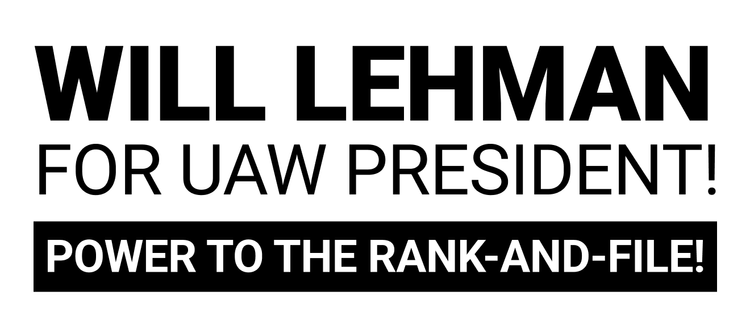This is C.I.'s "Iraq snashot" for today:
An airstrike on a military airport in northern Iraq’s semi-autonomous Kurdish region killed three people Monday, local officials said.
The region’s counter-terrorism service said in a statement that the attack on the Arbat Airport, 28 kilometers southeast of the city of Suleimaniyah killed three of its personnel and injured three members of the Kurdish Peshmerga forces.
“This attack constitutes a violation of Iraq’s sovereignty,” he said, adding: “Iraq reserves the right to put a stop to these violations.”
The United Nations mission in Iraq condemned the attack on Arbat airfield.
“Attacks repeatedly violating Iraqi sovereignty must stop,” it said. “Security concerns must be addressed through dialogue and diplomacy — not strikes.”
Bafel Talabani, President of the Patriotic Union of Kurdistan (PUK), one of the dominant Kurdish parties in northern Iraq, confirmed Monday's drone strike. He said those killed and wounded were members of the Iraqi Kurdish counter-terrorism force.
"We strongly condemn the terrorist attack on the Agricultural Airport of Arbid in Sulaymaniyah, which resulted in the martyrdom and injury of six heroic Peshmerga," he said.
Iraqi Kurdistan’s internal security forces, Asayish, said the counter-terrorism force was attacked and three members were killed during a training mission inside the airport.
Iraqi Kurdistan's Deputy Prime Minister Qubad Talabani condemned the drone attack and demanded the intervention of the federal government authorities to "prevent these attacks from recurring".
Last week, Assistant Treasury Secretary Elizabeth Rosenberg visited Iraq and met Mr Al Sudani and the Governor of the Central Bank of Iraq Ali Al Alaq.
They discussed bilateral relations and measures taken by the bank to fight money laundering and terrorist financing, the central bank said.
Washington has been pressing Iraq since last year to stop the flow of the dollar through the foreign currency auction run by the Central Bank of Iraq to countries under US sanctions, including Iran, Syria and Lebanon.
The Federal Reserve Bank of New York has applied strict measures on requests for international transactions from Iraq, rejecting many and delaying others.
The below is attributable to Spokesperson Matthew Miller:
Secretary of State Antony J. Blinken met with Iraqi Prime Minister Mohammed Shiaa al-Sudani today on the margins of United Nations General Assembly in New York. Secretary Blinken and Prime Minister Sudani renewed their commitment to continue strengthening the partnership between the two countries and reaffirmed the principles in the U.S.-Iraq Strategic Framework Agreement. The Secretary also encouraged the Government of Iraq to continue sustainably developing energy resources and combating climate change and underscored U.S. support for re-opening of the pipeline with Türkiye. The Secretary urged the Iraqi government to continue its cooperation with the Kurdistan Regional Government (KRG) to foster the KRG’s stability and resiliency. The Secretary commended the Prime Minister’s commitment to judicial independence in Iraq’s recent conviction and sentencing of multiple individuals on terrorism charges in connection with the killing of U.S. citizen Stephen Troell. The Secretary conveyed an invitation from President Biden to the Prime Minister to visit the White House soon and reiterated the U.S. commitment to assisting Iraq in achieving a secure, stable, and sovereign future.
He asserts that as the first Iraqi leader since the U.S. invasion in 2003 to have spent his entire life within the country, he is better able to understand what Iraqis have been through, and to make changes.
Every other prime minister after the toppling of Saddam Hussein spent years in exile or working abroad, but Mohammed Shia al-Sudani, 53, never fled Iraq, despite Mr. Hussein’s having ordered the execution of his father and other close relatives.
“I am a product of the institutions of the state,” Mr. al-Sudani said in a recent interview in Baghdad, “and I understand the citizens and their priorities.” He described himself as part of “a second generation” of post-Hussein politicians, and said those with his background were closer to the people and understood that “the street wants a change.”
Mr. Sudani’s assessment is born of 20 years of holding government jobs, from mayor to minister. During that time, he has managed to win over Iraqis of almost all political stripes, coming across as straightforward — even earnest — and pragmatic.
But he faces formidable obstacles, given the challenges confronting Iraq. Among them are global warming, the persistent and growing influence of Iran, and the entrenched system of corruption in a country where a high percentage of jobs are in government, and where applicants often must pay a bribe or have a political connection even for low-paying positions.
The New College of Florida saw a dramatic drop in its national ranking amid an ongoing conservative overhaul.
In its newly revamped ranking system report released Monday, U.S. News and World Report now lists the university, located in Sarasota, Fla., as tied for 100th place — a notable 24-spot decrease from its previous ranking.
The trend, while startling, reflects a decrease seen across the map for universities located in the state — with the University of Florida dropping one spot, the University of South Florida dropping three spots, and Florida State University dropping three spots.
The drop in rankings comes amid a massive conservative overhaul that has been going on since January after Gov. Ron DeSantis appointed a new majority to the university’s board of trustees and tasked them with transforming the school into the "Hillsdale College of the South,” a private conservative Christian school in Michigan.
Social theorist and cultural critic Henry Giroux, has correctly described DeSantis' weaponization of education in the service of a white supremacist fascist agenda as being an example of "apartheid pedagogy". In an essay at the LA Progressive, he explains:
Apartheid pedagogy is about denial and disappearance—a manufactured ignorance that attempts to whitewash history and rewrite the narrative of American exceptionalism as it might have been framed in in the 1920s and 30s when members of a resurgent Ku Klux Klan shaped the policies of some school boards. Apartheid pedagogy uses education as a disimagination machine to convince students and others that racism does not exist, that teaching about racial justice is a form of indoctrination, and that understanding history is more an exercise in blind reverence than critical analysis. Apartheid pedagogy aims to reproduce current systems of racism rather than end them. Apartheid pedagogy most ardent proponent is Florida Gov. Ron DeSantis who has become America's most prominent white supremacist.
Apartheid pedagogy is a form of white supremacy; white supremacy is inherently violent. Apartheid pedagogy is not new. Its roots can be traced back to slavery, the end of Reconstruction, and the Jim and Jane Crow terror regime and "separate but equal". Today's attempts by the "conservative" movement to reverse the gains of the civil rights movement are but a continuation of that centuries-long white supremacist political project to protect and expand white privilege and white domination over every area of American life. Apartheid pedagogy as seen in DeSantis's Florida is also part of a much larger global project as seen in Orban's Hungary, Putin's Russia, and other parts of the "Western" world, to end multiracial pluralist democracy.
“Did you guys hear the U.S. Senate just eliminated its dress code because you got this guy from Pennsylvania — who’s got a lot of problems, let’s just be honest — like how he got elected, well I mean he got elected because they didn’t want the alternative,” began DeSantis, inserting a veiled swipe at former President Donald Trump and Mehmet Oz, his handpicked GOP candidate into his critique of Fetterman.
“He wears like sweatshirts and hoodies and shorts, and that’s his thing. So he would campaign in that — which is your prerogative, right? I mean, if that’s what you want to do,” he continued. “But to show up in the United States Senate with that and not have the decency to put on proper attire? I think it’s disrespectful to the body, and I think the fact that the Senate changed the rules to accommodate that I think speaks very poorly to how they consider that.”
|
- Truest statement of the week
- Truest statement of the week II
- A note to our readers
- Iraq
- Media: Distortions
- LGBTQ+ Roundtable
- Books (Ava and C.I.)
- Tweet of the week
- Josh Duhamel embraces transphobe politician
- C.I. reviews Naomi Klein's DOPPELGANGER: A TRIP IN...
- Books
- The Battle Against the Automakers Is More Than a S...
- This edition's playlist
- Highlights

